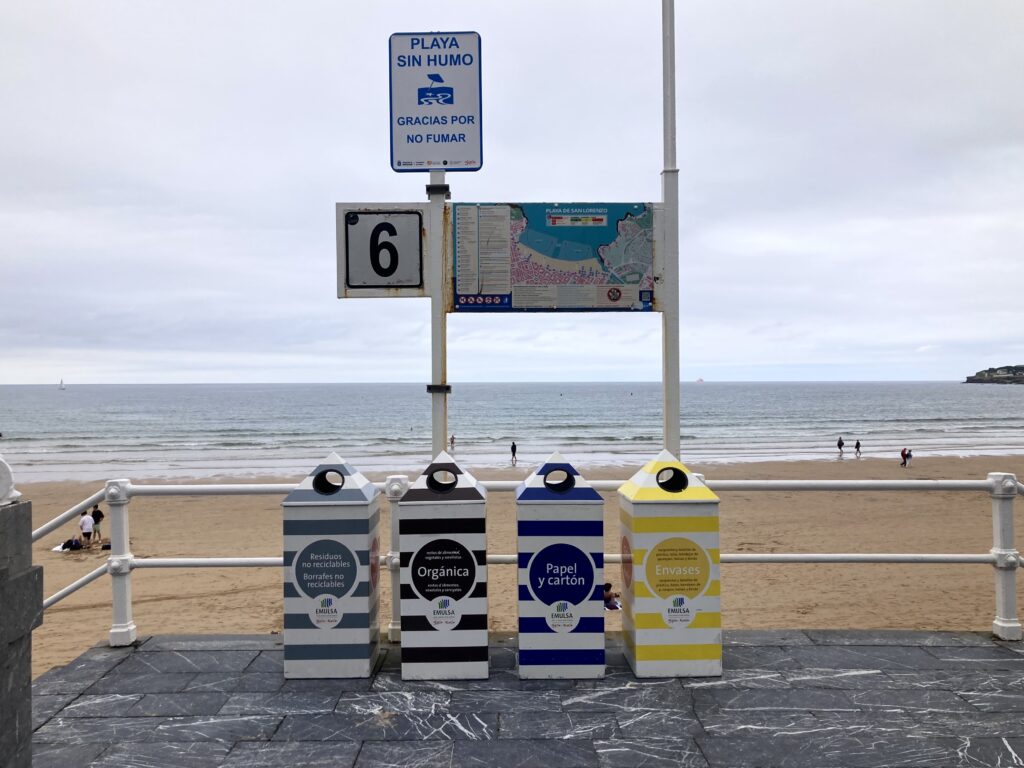While Spain may not typically be seen as a recycling model country, it does have an extensive recycling system. For instance, plastic packaging can easily be disposed of in yellow containers at beaches. In 2024, Spain had a total of 412 773 yellow recycling bins, ensuring that a container is located on average within 100 meters from residential areas. In Spain, recycling, much like enjoying coffee or tapas, predominantly occurs in public spaces rather than in private homes or backyards.
Spain recycles plastic at an average rate
Spain’s plastic packaging recycling rate (41.2%) is close to the European Union average, whereas Slovakia has the highest rate in the EU, at over 59%. In comparison, Finland’s recycling rate is 30.7%, which is below the average.
However, the success of recycling is not solely determined by recycling rates but also by how much material genuinely remains in circulation and the sustainability of the system over the long term. In Spain, consumer plastic recycling is based on a simple division between packaging plastics and non-packaging plastics, with further separation happening later in sorting facilities. Finland, on the other hand, accepts only clean, single-material plastics for recycling, which reduces the volume of recycled plastics but increases the quality of recycled material.
Progress is also being made in Spain to address plastic waste. In 2023, Spain introduced a tax on single-use packaging to reduce non-recycled single-use plastics. Furthermore, the country aims to implement a bottle deposit system by the end of 2026.
Northern Spain’s Only Plastic-Free Store
Kolozero store in Gijón has made significant progress in reducing consumer plastics. The city is home to northern Spain’s only plastic-free store, Kolozero, which offers products without single-use plastics and encourages customers to bring their own containers, bags, and jars. The store’s selection includes loose food items, detergents, natural cosmetics, and even toilet paper without plastic packaging.
The idea for a plastic-free supermarket emerged in Gijón during the pandemic, when similar zero-waste stores were already operating in larger Spanish cities such as Madrid and Barcelona. The shop is also supported by the regional council, as Kolozero has received funding from the Council of Government of the Principality of Asturias.
Funding for circular economy initiatives is also available at the national level.
PERTE (the Circular Economy Strategic Project for Economic Recovery and Transformation) is Spain’s strategic state program designed to accelerate the transition to a circular economy. PERTE integrates policy guidelines, business subsidies, sector-specific targets—such as plastics and textiles—and clear national directives for promoting the circular economy. Between 2024 and 2026, PERTE will mobilize more than 1.2 billion euros for the plastics sector.

